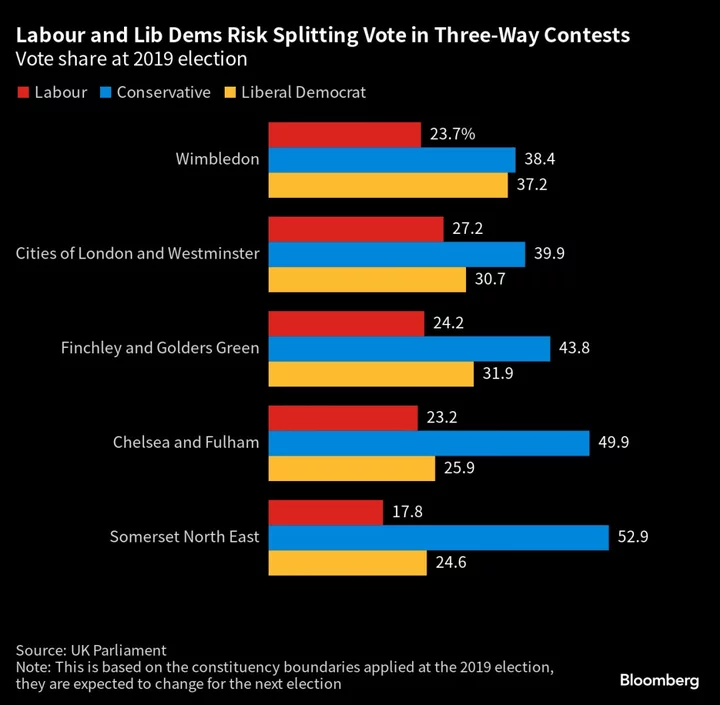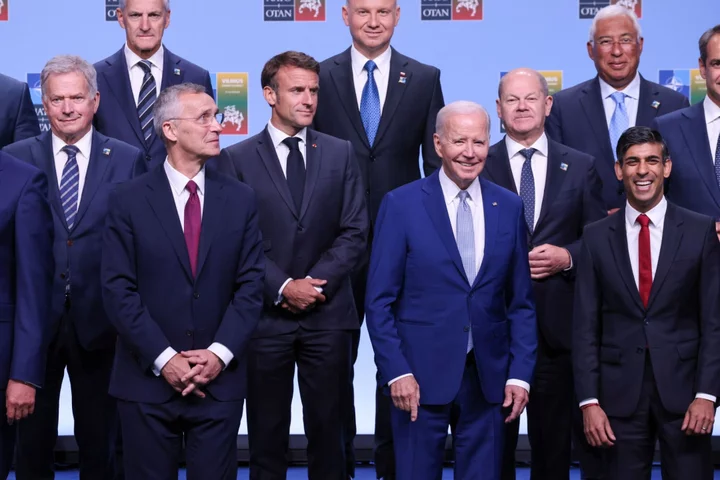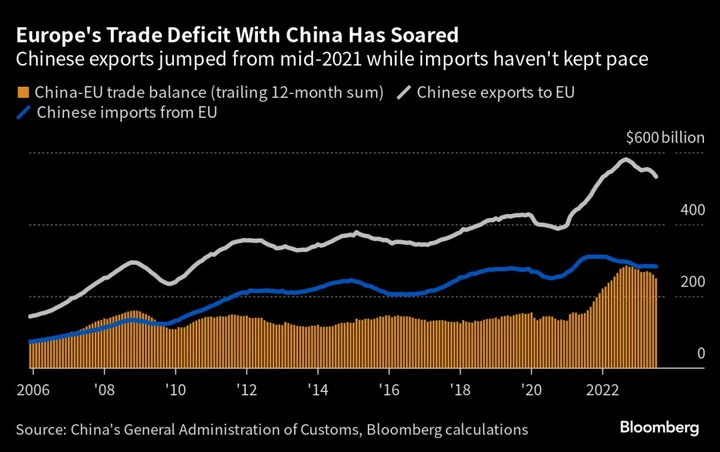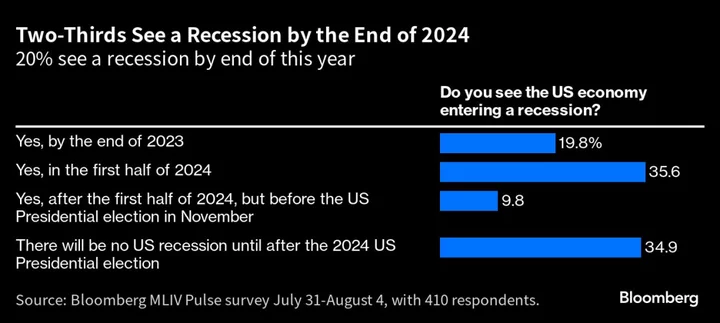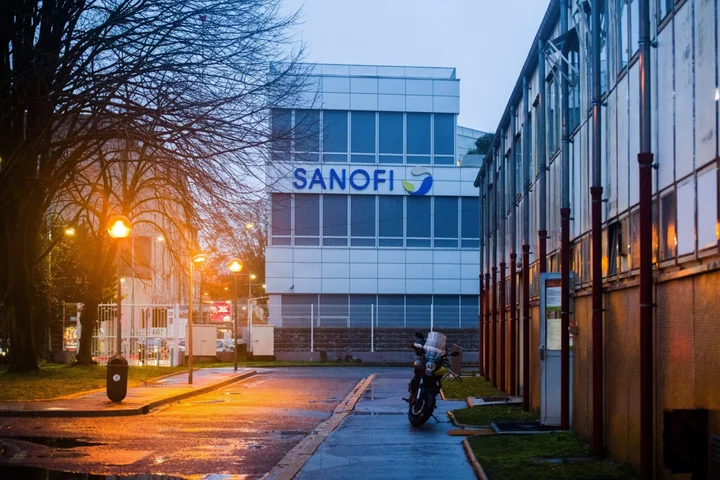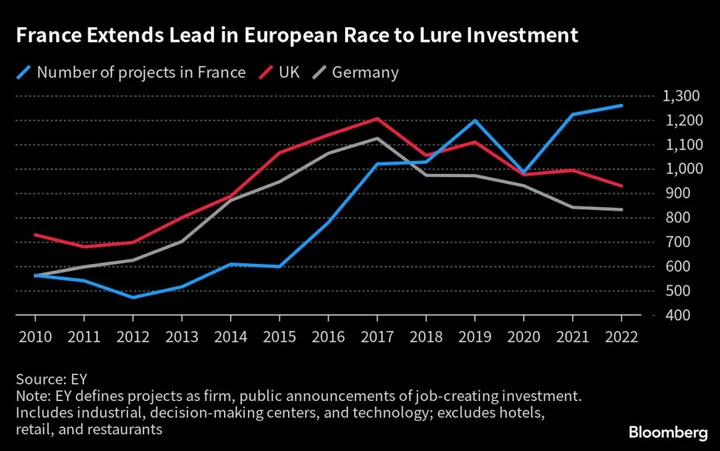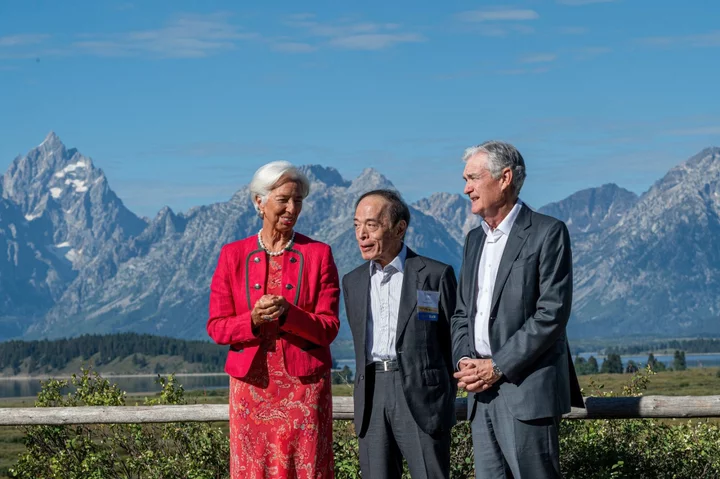As orange-wearing Liberal Democrat party activists strolled the sunny seafront in Bournemouth this weekend for their annual conference, a tantalizing prospect buoyed their spirits: The chance to be kingmakers in British politics for the first time in almost a decade.
With the main opposition Labour Party needing an historic vote swing to oust Rishi Sunak from Downing Street at the general election expected next year, the centrist Lib Dems see a window of opportunity akin to 2010 when their support was needed to form a stable government with the Tories. Whether a formal coalition or an informal pact, it’s a scenario where they could demand concessions — such as ministerial positions or specific policies — in exchange for their support.
Vince Cable, a former leader of the Liberal Democrats who was part of the 2010 coalition government with the Tories, predicts a 45% chance that Labour won’t win an outright majority at the next election and hence may need the Liberal Democrats’ help.
The Lib Dems are “aiming at 30 seats and hopefully to play an important role,” Cable said in an interview. “I don’t think anybody is counting chickens, but we’ve come back and we’re very relevant.”
Labour maintains a double-digit lead over the Conservatives in most opinion polls, but even a victory on that scale in the popular vote may not be enough for a majority in the House of Commons. That could make the Lib Dems key to the creation of the first Labour government in more than 13 years.
The question of whether Labour’s Keir Starmer would do a deal with Ed Davey’s Liberal Democrats is one of the most significant for the UK’s near-term political future — and for now, both sides equivocate. Starmer sidestepped the question earlier this year, saying he’s focused on pursuing an outright majority. That was an apparent shift from a year earlier, when he told Bloomberg that he wouldn’t consider a deal with “anyone.”
For their part, Liberal Democrats leaders think Labour wouldn’t seek to build a formal coalition in the event of a hung Parliament, and Starmer would instead try to govern as a minority leader, according to a senior party figure. There have been no behind-the-scenes talks about any kind of potential pact, the person said, speaking on condition of anonymity.
And even then, the Liberal Democrats were badly stung by their coalition experience in 2010 — the party famously reneged on a pledge for free university tuition and were punished heavily at the ballot box and pushed into the political wilderness. Hence there is skepticism within the party of entering coalition again, so any arrangement with Labour would likely be a loose one.
Bookmaker Ladbrokes puts the odds of no party having an overall majority after the next election at 5-2, compared with 4-9 for a Labour majority and 8-1 for a Conservative majority.
Talking down potential post-election cooperation is unsurprising because both Labour and the Liberal Democrats fear the common Tory warning of the threat of a “coalition of chaos,” an attack line that helped then-Conservative leader David Cameron defeat Labour in the 2015 general election. But what matters is how the political parties behave when power is on the line — and as Cameron showed in 2010, that often encourages deal-making.
There’s enough policy overlap between Labour and the Lib Dems that they’d be able to find the basis for an informal agreement if required in a hung Parliament, said Tom Brake, director of Unlock Democracy, which campaigns for UK political reform such as introducing a proportional representation voting system.
“There’s lots of work the two parties could do together,” Brake said, who was himself a Liberal Democrat MP between 1997 and 2019 and served as a minister in the last coalition government. Investing in the National Health Service, restoring trust in politics and a concern for social issues are common ground, Brake said.
Just as important will be the pre-election strategy for Labour and the Lib Dems and whether they can avoid significantly splitting the progressive vote, a past downfall that has historically helped the Tories. The issue is apparent in the upcoming by-election in Mid Bedfordshire, where Labour and the Lib Dems are campaigning aggressively against one another in a three-way race with the Conservatives. Under Britain’s first-past-the-post voting system, the party with the most votes in a district wins the seat.
James Johnson, co-founder of pollster JL Partners, said that, although there aren’t many three-way marginal seats, there are numerous seats where a 10%-15% share for Labour or the Liberal Democrats could stop either party from taking seats from the Conservatives.
“There’s a lot of rivalry between them on the ground and they don’t necessarily always see eye-to-eye,” he said. “Starmer has his eyes on a Labour majority.”
That said, the Liberal Democrats are planning to marshal their resources strategically at the next national vote and won’t campaign heavily in seats where they don’t have a chance of beating Labour, according to the senior party figure.
For Sunak, the main electoral threat from the Lib Dems comes in the south and southwest, often in rural areas where the party has historically enjoyed support through intensive local campaigning. The Lib Dems have overturned massive Tory majorities in recent by-elections and are hopeful of further in-roads.
Back in Bournemouth, Liberal Democrat MPs say their immediate focus is on the general election and that it’s too early to be thinking about potential post-vote scenarios. Much of the party’s positivity stems from strong local election results earlier this year and an increasingly warm reception from voters on the doorstep, said Munira Wilson, the party’s education spokesperson.
“The mood is really upbeat and optimistic,” Wilson said. “But what happens next, that’s down to the electorate.”
--With assistance from Kitty Donaldson, Emily Ashton and Eamon Akil Farhat.

